International
The majority of the Supreme Court rejects Bolsonaro’s appeals in the case of the coup d’état

The majority of the Supreme Federal Court (STF) of Brazil rejected on Wednesday the appeals presented by former President Jair Bolsonaro to try to remove two judges within the framework of the process in which he is accused of leading a coup plot against the government of Luiz Inácio Lula da Silva.
The president of the Supreme Court, Luiz Roberto Barroso, who is an instructor in the trial, rejected Bolsonaro’s request to challenge two of the magistrates and most of the judges of the high court voted in the same direction, in a telematic session.
The defense of the Brazilian far-right leader claimed that magistrates Cristiano Zanin and Flávio Dino would not be impartial in the trial, because before assuming their positions in the STF they filed judicial complaints against Bolsonaro.
Barroso was the first of the eleven Supreme Court magistrates to publish his vote on these four appeals in the court’s electronic voting system and was seconded by at least five judges, which makes the decision irreversible.
The two magistrates involved cannot vote and the rest of the judges have until midnight on Thursday to rule on the appeals presented by Bolsonaro and others involved.
According to Barroso, Bolsonaro’s new appeals have no news with respect to previous petitions that he himself has already rejected, and requests for recusal from judges are not protected in the Code of Criminal Procedure.
The majority of the Supreme Court also rejected the appeal of former minister Walter Braga Netto, a retired Army general accused of being one of the leaders of the coup plot, who requests the recusal of magistrate Alexandre de Moraes.
Braga Netto’s defense alleges that one of the charges is a plan to murder De Moraes, so this magistrate would have to challenge himself for not being able to be a judge and victim at the same time.
The First Chamber of the Supreme Court has already scheduled three extraordinary sessions for March 25 and 26 in which it will decide whether to accept the coup accusations against Bolsonaro and seven other defendants and whether to open criminal proceedings.
The complaint against Bolsonaro and his closest nucleus, filed in February by the Prosecutor’s Office, accused the former president and 33 other suspects of attempted violent abolition of the Democratic Rule of Law, armed criminal organization and coup d’état, among other crimes.
The conspiracy, according to the accusation, began after then-President Bolsonaro lost the October 2022 elections to the current president.
The coup plot would have first tried to prevent Lula’s inauguration and then led to the violent assault on the headquarters of the three powers of the State on January 8, 2023, a week after his inauguration, when thousands of ultras pressured the Army to overthrow the new Government.
International
U.S. Targets Members of Outgoing Boric Administration With Visa Revocations

The United States government announced on Friday the revocation of visas for three Chilean officials—whose identities were not initially disclosed—citing activities that allegedly “undermined regional security,” an accusation that Chile denies.
In a statement, the U.S. Department of State did not provide specific details about the individuals involved but criticized the outgoing administration of leftist President Gabriel Boric.
“The legacy of the Boric government will be further tarnished by actions that undermine regional security to the ultimate detriment of the Chilean people,” the statement read. It was signed by U.S. Secretary of State Marco Rubio.
Chile’s Minister of Transport, Juan Carlos Muñoz, later confirmed in a video message to the press that he is among those sanctioned.
“I was recently informed that my visa to enter the United States has been revoked by that country, which I deeply regret,” Muñoz said.
The U.S. statement also noted that Washington hopes to “advance shared priorities, including those that strengthen security in our hemisphere, with the upcoming Kast government.”
The electoral victory of ultraconservative leader José Antonio Kast was welcomed in Washington, which has been building alliances with like-minded governments in the region to reinforce its diplomatic and economic agenda—particularly in response to China’s growing investment presence in Latin America.
“We remain committed to promoting accountability for Chilean individuals who deliberately work to destabilize our hemisphere,” the statement concluded.
International
Three Injured in Mail Package Explosion at Buenos Aires Gendarmerie Academy

Three people were injured on Friday after a mail package exploded at the Escuela Superior de Gendarmería in Buenos Aires, according to a statement released by Argentina’s Ministerio de Seguridad.
The explosion occurred at 1:49 p.m. local time (16:49 GMT) inside a building located less than one kilometer from the Government House, the ministry reported.
“Personnel from the force handled a parcel that had reportedly been received months earlier and was being stored at the facility. When it was opened, an explosion occurred, causing injuries to two officers,” the statement said.
The ministry added that both injured officers were transported to a hospital and are not in life-threatening condition. “A third officer remains in recovery and is out of danger,” authorities confirmed.
Following the incident, police cordoned off the surrounding area, halted traffic, and evacuated the 11-story building as well as adjacent buildings on the same block.
Mariana Bornio, an employee at a telecommunications company located in a neighboring building, said that as she was being evacuated, she saw one of the injured gendarmes leaving the scene shirtless and covered with a blue medical gown.
International
Top U.S. Military Commander Meets Interim Venezuelan Leaders After Maduro’s Capture
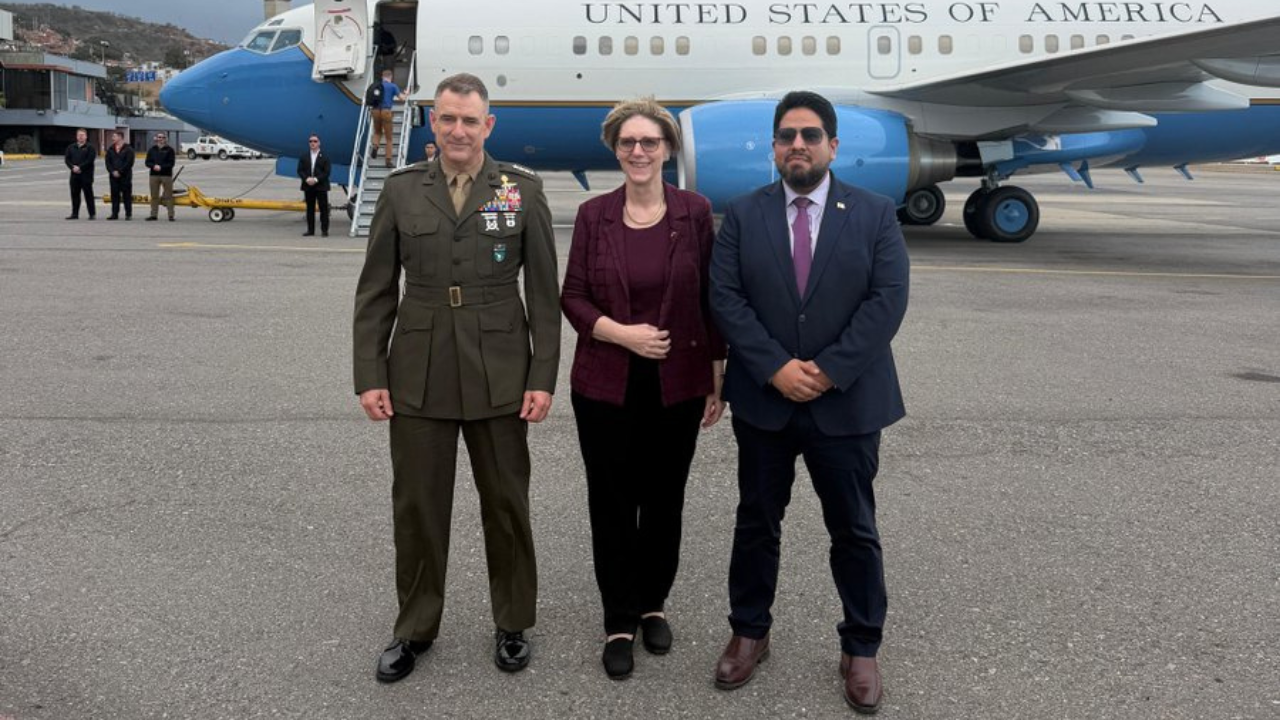
The commander of the United States Southern Command, Marine Francis L. Donovan, visited Venezuela on Wednesday, holding meetings with interim leaders following the recent capture of former President Nicolás Maduro by U.S. forces. The visit, confirmed by both U.S. and Venezuelan officials, marked a significant diplomatic and security engagement in Caracas.
Donovan, accompanied by senior U.S. officials including acting Assistant Secretary of Defense Joseph M. Humire and top diplomat Laura Dogu, met with acting President Delcy Rodríguez and key members of her cabinet, including Defense Minister Vladimir Padrino López and Interior Minister Diosdado Cabello.
According to official statements, discussions focused on strengthening bilateral cooperation on regional security issues, including efforts to combat illicit drug trafficking, terrorism, and migration. Both sides reiterated a commitment to pursuing diplomatic engagement and shared security goals for Venezuela and the Western Hemisphere.
The meetings also discussed progress on a three-phase plan supported by the United States to help stabilize Venezuela, following Maduro’s removal from power and subsequent detention in the U.S. on drug-related charges. This agenda reflects expanding U.S. engagement with Venezuela’s interim government amid broader efforts to restore diplomatic relations and address regional challenges.
The visit concluded on Wednesday, underscoring a growing U.S. focus on cooperation with Venezuelan authorities in the aftermath of major political developments earlier this year.
-
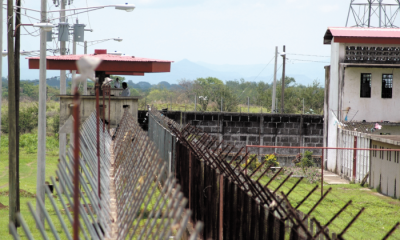
 Central America3 days ago
Central America3 days agoWashington Imposes Visa Ban on La Modelo Director Amid Crackdown in Nicaragua
-
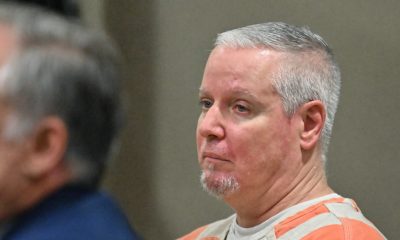
 International4 days ago
International4 days agoFather Faces Murder Charges in Georgia School Shooting Case
-
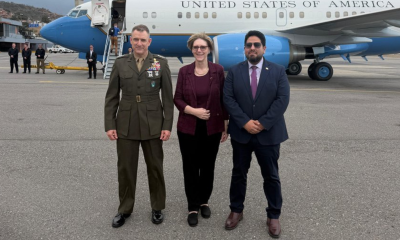
 International2 days ago
International2 days agoTop U.S. Military Commander Meets Interim Venezuelan Leaders After Maduro’s Capture
-
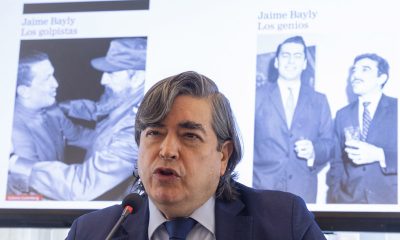
 International3 days ago
International3 days agoBayly Says Trump ‘Gets Along Better With Dictators’ and Criticizes U.S.–Venezuela Policy
-

 International3 days ago
International3 days agoRubio Engages in Quiet Discussions With Castro Family as U.S. Pressures Havana
-
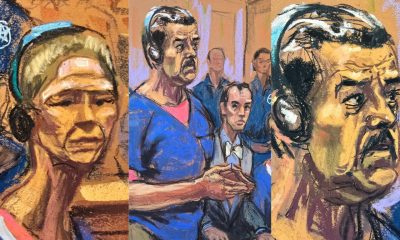
 International3 days ago
International3 days agoMaduro and Cilia Flores Receive Consular Visit in U.S. Jail Ahead of March 26 Hearing
-

 International13 hours ago
International13 hours agoThree Injured in Mail Package Explosion at Buenos Aires Gendarmerie Academy
-

 International4 days ago
International4 days agoSpanish Government Targets ‘Big Tech Impunity’ in AI Image Scandal
-

 International13 hours ago
International13 hours agoU.S. Targets Members of Outgoing Boric Administration With Visa Revocations
-
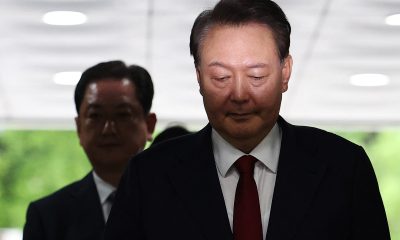
 Sin categoría2 days ago
Sin categoría2 days agoFormer South Korean President Yoon Suk-yeol Sentenced to Life for Insurrection
-
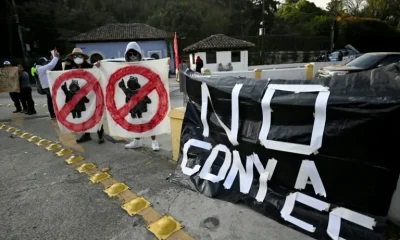
 Central America4 days ago
Central America4 days agoGuatemala’s Attorney General Consuelo Porras Loses Bid for Constitutional Court Seat


























